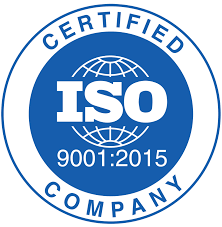HTML5 Training course, for intermediate to advanced learners, provides an accelerated introduction to HTML5, CSS3, and JavaScript and helps students learn basic programming skills. The Jump Start focuses on using HTML5 Training/CSS3 Training/JavaScript Training to implement programming logic, define and use variables, perform looping and branching, develop user interfaces, capture and validate user input, store data, and create well-structured applications. The course uses Visual Studio 2012, running on Windows 8. It is intended for developers who have at least six months of professional experience and who are interested in developing applications using HTML5 with JavaScript and CSS3 (either Windows Store apps or Internet Explorer 10 apps for the web). In our course you will start with basic HTML tags. You will learn how to create HTML websites and use CSS in your work before we start discussing HTML5. We do not assume any prior knowledge so we go through the concepts from the beginner’s point of view. In our HTML5 lectures we start with new tags and forms. We then gradually move to advance topics like Drag and Drop and Multimedia. We follow it with difficult topics like Geolocation, WebStorage and Application cache. This course creates easy to grasp examples for each of the concepts and by the end of it you will be able to understand the complete picture rather than just bits and pieces of the technology.
What Is HTML5? History of HTML5
Philosophy of HTML5
Future Of HTML5
Browser Support
Features Detection
Support For Legacy Browsers
Graceful Degradation
Emulation of HTML5
Developer Tools in HTML5
HTML5 DOCTYPE
Page Encoding
Markup
Updated Elements
New Structural Elements
New Attributes in HTML5
Elements And Attributes
HTML5 And CSS3
HTML5 Forms
The Needs For Web Applications in Changing Time?
Current Available Solutions
New Input Types
Attributes of HTML5
Form Validation
Browser compatibilities
Audio/Video
The State of Web Audio/ Video on Plugins
The State Of A/V
HTML5 Audio/Video Markup
Attributes And Methods
Audio/Video Events
Customizing A/V Controls
HTML5 Canvas Vs. SVG Accessibility
Using A Canvas
Context And Coordinates
Drawing Shapes
Working With Paths
Drawing Straight Lines, Circles and Arcs
Drawing Text
Drawing Images and working with pixels
Transforms controls
Translation, Rotation and Scaling
Data Storage in HTML5
Problems With The Existing Cookie-based Model
New Storage Options
Web Storage and SQL Storage
Offline Applications
The Need For Offline Mode
The Manifest File
The application Cache Events
Deployments And Updates
HTML5 Geo-Location
Geo-Location
Privacy concerns
Two Main Methods and position objects
Handling Errors
The Position Options Object
HTML5 Web Workers
The existing JavaScript Execution Model
Web Workers
Usage Of Web Workers
Communication APIs
Handling Errors
Browser Support
HTML5 Messaging APIs
Cross-document Messaging
The Origin Concept
Cross-document XMLHttp Request
Progress Events
Server-sent Event
Browser Support
Web Sockets
Overview Of Web Communication Options
The History (Comet)
Overview Of Web Sockets API And Protocol & Advantages
Browser Support


